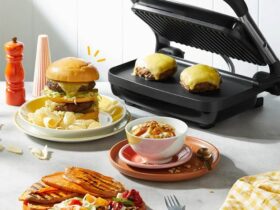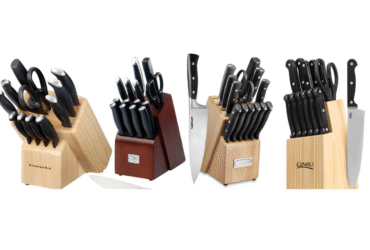George Foreman is a name that resonates far beyond the boxing ring. Known worldwide as a legendary heavyweight champion and a savvy entrepreneur, George Foreman has built a legacy that spans sports, business, and pop culture. From dominating the boxing world with his raw power and resilience to revolutionizing home cooking with the George Foreman Grill, his influence is both historic and ongoing. Whether you know him for his unforgettable fights or his best-selling kitchen appliance, George Foreman’s story is one of reinvention, determination, and lasting impact.
Early Life and Background
Childhood and Family
George Foreman was born on January 10, 1949, in Marshall, Texas, and was raised in the tough Fifth Ward neighborhood of Houston, Texas. Growing up in a poor and crowded household, Foreman was one of seven children. Life was far from easy—his family struggled financially, and George often found himself on the wrong side of the law as a teenager. Despite the challenges, his upbringing in Houston played a critical role in shaping the fighter he would later become, both in the ring and in life.
Path to Boxing
As a youth, George Foreman faced a troubled path. He dropped out of school by the age of 15 and was frequently involved in street fights and petty crime. His life took a drastic turn when he enrolled in the Job Corps, a government program designed to help disadvantaged young people gain skills and direction. It was there that Foreman discovered boxing—and his natural talent and aggression made him a standout almost immediately. Under the mentorship of trainer Doc Broadus, Foreman began to channel his energy into the sport, setting the foundation for a legendary career.
George Foreman’s Boxing Career
Amateur Career
George Foreman began his boxing journey with an impressive amateur career that quickly gained national attention. His most notable achievement came in 1968, when he represented the United States at the Summer Olympics in Mexico City. Foreman dominated his weight class and won the gold medal in the heavyweight division, defeating Ionas Chepulis of the Soviet Union in the final. His Olympic success catapulted him into the spotlight and laid the foundation for a powerful professional career.
Rise as a Professional Boxer
Following his Olympic triumph, George Foreman turned professional in 1969, quickly making waves in the heavyweight division. He gained a reputation for his incredible punching power and relentless fighting style. Foreman won his first 37 professional fights, most by knockout, leading to a title shot against then-undefeated champion Joe Frazier.
In 1973, Foreman stunned the world by knocking Frazier down six times in just two rounds to claim the WBA and WBC heavyweight titles. His aggressive, forward-pressing style and devastating uppercuts made him one of the most feared heavyweights of his era.
Famous Fights
Joe Frazier (1973)
In one of the most iconic bouts of the 1970s, Foreman faced Joe Frazier for the heavyweight crown. The fight ended in a brutal second-round technical knockout, marking one of the most dominant championship performances in boxing history.
Muhammad Ali – Rumble in the Jungle (1974)
Foreman’s next major bout came in 1974 against Muhammad Ali in Zaire, famously known as the Rumble in the Jungle. Despite entering the ring as the heavy favorite, Foreman was outwitted by Ali’s “rope-a-dope” strategy and suffered his first professional loss via eighth-round knockout. The fight remains one of the most legendary events in boxing.
Comeback in the 1990s (Michael Moorer Fight, 1994)
After a 10-year retirement, Foreman made an extraordinary return to the ring in the late 1980s. In 1994, at the age of 45, he shocked the world by knocking out Michael Moorer to reclaim the heavyweight title, becoming the oldest heavyweight champion in history. This win solidified his legacy and inspired millions.
Retirement from Boxing
George Foreman initially retired from boxing in 1977 after a spiritual awakening, but he returned a decade later, driven by a desire to fund his youth center and reclaim personal glory. His second run, marked by charisma and endurance, proved just as inspiring as his early dominance.
Foreman finally retired for good in 1997 with an outstanding professional record of 76 wins (68 by knockout) and 5 losses. His boxing legacy is one of power, resilience, and reinvention—cementing him as one of the sport’s all-time greats.
Business Ventures
The George Foreman Grill
One of George Foreman’s most iconic achievements outside the boxing ring is the invention and promotion of the George Foreman Lean Mean Fat-Reducing Grilling Machine—commonly known as the George Foreman Grill. In the mid-1990s, Foreman partnered with Salton Inc., a home appliance company, to endorse the grill as a healthier way to cook food, using his image as a fit, older athlete to appeal to health-conscious consumers.
The product was an instant hit. Its simple design, ease of use, and fat-reducing promise made it a staple in kitchens worldwide. Over 100 million grills have been sold globally, turning George Foreman into a household name beyond sports.
Financially, the grill was a game-changer. It’s estimated that Foreman earned over $200 million from the deal, far surpassing his total boxing earnings. The product became a pop culture phenomenon, demonstrating his ability to pivot successfully into business and marketing.
Other Business Projects
Beyond the grill, George Foreman explored numerous business ventures that reinforced his brand and public presence.
Books and Autobiography
Foreman has authored multiple books, including autobiographies, fitness guides, and inspirational titles. His storytelling is often infused with humor, life lessons, and faith, offering insights into his journey from troubled youth to champion athlete and successful entrepreneur.
Endorsements and Public Appearances
George Foreman’s charisma made him a sought-after figure for endorsements. Over the years, he has lent his name and face to various products—from health supplements to financial services—capitalizing on his trustworthy and likable public image.
Media and TV Projects
Foreman also embraced media with appearances on reality TV shows, talk shows, and commercials. He hosted “Family Foreman”, a reality series centered around his home life, and made regular appearances as a commentator and motivational speaker. His presence in pop culture remained strong well into the 2000s and beyond.
Personal Life
Family and Children
George Foreman is not only known for his boxing and business accomplishments but also for his unique family traditions. He has twelve children, including five sons—all named George (George Jr., George III, George IV, George V, and George VI). This quirky naming choice, he once explained, was to ensure they would all carry a strong, unifying legacy.
His daughters also have distinctive names like Georgetta and Freeda Foreman (a former professional boxer herself). The Foreman family legacy is one of unity, strength, and pride, often showcased in interviews and media appearances that highlight their close bond.
Religious Beliefs and Personality
A major turning point in George Foreman’s life occurred in 1977, following a defeat in the ring. He experienced what he describes as a divine encounter in the locker room—a moment that led him to become a born-again Christian. From that day forward, faith became the center of his life.
After retiring from boxing, he spent nearly a decade as a Christian minister, preaching at his church in Houston and working to support underprivileged youth. His warm, humorous, and motivational personality has made him a sought-after public speaker, sharing life lessons on perseverance, faith, and redemption.
Legacy and Impact
Influence in Boxing
George Foreman’s influence in boxing is undeniable. Known for his incredible punching power, resilience, and career longevity, he remains one of the most feared and respected heavyweights in boxing history. With a professional record of 76 wins and only 5 losses, including 68 knockouts, his dominance in the ring spanned decades.
What makes Foreman particularly unique is his remarkable comeback—becoming the oldest heavyweight champion at age 45, proving that age is not a barrier to greatness. His success across two vastly different eras of boxing solidifies his status as one of the all-time greats.
Cultural and Entrepreneurial Influence
George Foreman’s impact goes beyond the sport. He is widely regarded as a crossover icon, seamlessly transitioning from athlete to global entrepreneur and television personality. His successful promotion of the George Foreman Grill made him a symbol of health, family, and business acumen.
He has become an inspiration for athletes seeking life after sports, showing how one’s platform can be used to build a sustainable, influential brand. From fitness and nutrition to faith and family, Foreman’s influence on pop culture, health-conscious living, and motivational speaking continues to be profound and far-reaching.
Fun Facts About George Foreman
George Foreman’s life is full of intriguing and entertaining moments that go beyond boxing and business. Here are some fun and surprising facts that showcase his personality, sense of humor, and place in pop culture:
- All of His Sons Are Named George
Perhaps the most famous fun fact about George Foreman is that he named all five of his sons “George Edward Foreman”—with Roman numerals to distinguish them (George II, George III, etc.). He’s often joked that this way, if one of them does something great, he’ll know he had something to do with it! - Memorable Quotes
George Foreman is known for his wit and charm, offering motivational and humorous quotes throughout his life. One of his most famous sayings is:
“The question isn’t at what age I want to retire, it’s at what income.”
Another fan favorite: “Everybody wants to be champion, but nobody wants to train like a champion.” - Pop Culture Appearances
Foreman has been a recurring figure in pop culture. He voiced himself in cartoons, appeared in commercials, guest-starred on talk shows, and even starred in a reality show called “Family Foreman” on TV Land. His grill has also become a cultural icon, mentioned in countless sitcoms, parodies, and internet memes.
From his unique parenting choices to his larger-than-life personality, George Foreman continues to be a beloved and unforgettable figure in American culture.













Leave a Reply